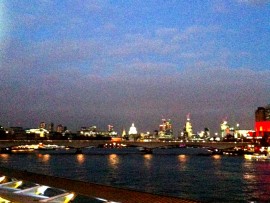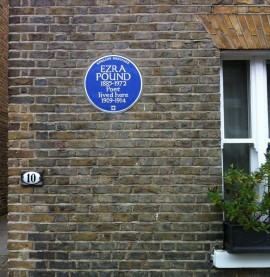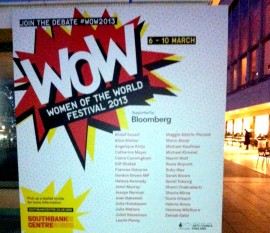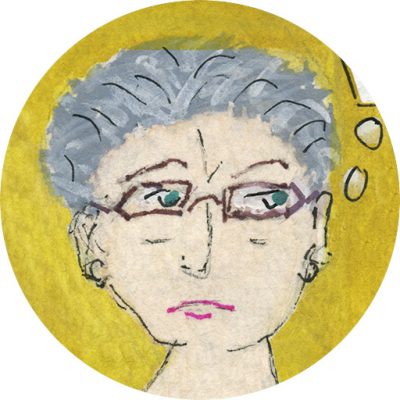I’m just back from Jewish Book Week in London, a city I now love the way I loved Paris when I first lived there—that feeling of everything to discover, that naïve and dopey conviction that everything is so much more wonderful there, especially everything old and literary.

The streets are dotted with blue plaques (850 of them) on the walls of buildings, indicating the years of residence of famous writers and artists, and otherwise famous people.

Here’s one for Ezra Pound I happened to stumble on my first morning walk. The blue plaque that generates countless pilgrimages—mine on another occasion—is the one affixed to Sylvia Plath’s house.

Even the generic Whole Foods displays look more interesting in London, with local blue eggs on offer.
English friends, less amused, complained about the mountains of fruit piled up at the entrance to the store. “So much waste!”
Jewish Book Week was all what I hoped it would be— a literary festival, literary but not in an academic mode, and not only about books. Located in a new venue at Kings Place, the event included many foreign participants, some young and just becoming known, others quite famous. My panel, moderated by journalist Henrietta Foster, had me paired with Orlando Figes, a well-known Russian historian. I suspected (correctly) that everyone in the Sunday morning audience (except for a few friends of mine who were kind enough to attend) had come for him, but I managed to survive as an underdog. At the book signing, several people told me they had family stories similar to those in What They Saved, and I was thrilled, as I always am when that connection is made. I love sharing a generational history.

The day after the festival, I crossed the bridge to the South bank and was delighted to see the announcement for another exciting festival under a rather different sign: “Women of the World Festival,” with a roster of fabulous names. It began, alas, the day I was leaving.
